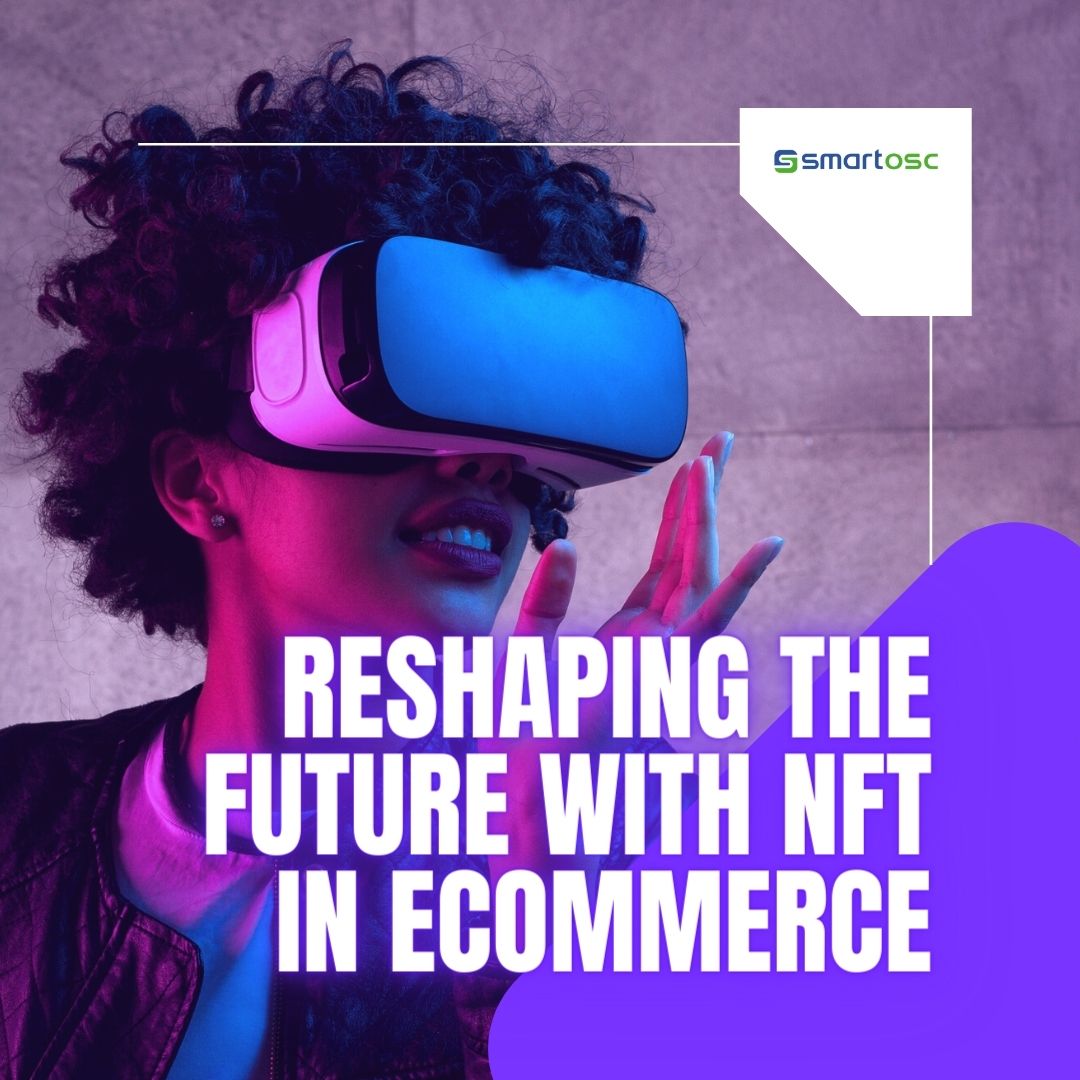NFTs or Non-Fungible Tokens have been around for many years. However, they only become mainstream and got the hype during 2021 with the engagement of artists. Rising popularity gives the opportunity for NFT integration into different fields like music, dApps, GameFi, and now maybe even eCommerce.
So, why should the eCommerce industry look out for NFT integration?
eCommerce has evolved over the years with room for non-tangible products. Before, one can only order clothes, books, furniture, pictures, etc. But nowadays, it’s common to buy software solutions, digital artworks, ebooks, and digital products online. Customer behavior is changing with technological adoption.
There are some potential advantages NFTs can bring to eCommerce. Firstly, the 3rd-party heavy involvement in eCommerce platforms can have a noticeable impact on commission distribution. NFTs can relieve the dependence on these parties. Secondly, online shopping has always faced the problem of fraud or ownership verification. With blockchain technology, ownership can be easily transferred and confirmed.

Applications of NFT in eCommerce
Next, let’s discover a few ways businesses can use NFTs in their online stores.
A new business model
There might be more stores that applied blockchain to their business model than you think. For example, the apparel giant Nike decided to just do it with CryptoKicks NFTs. Last year, the brand filed several trademark applications intended for virtual goods and started recruiting virtual designers, and bought a virtual shoes company, clearly preparing for metaverse. Other brands joining this trend are Gucci and NBA Top Shot.
This business model usually intends to send buyers a virtual version of the product i.e. instant fulfillment, which can give customers a secured sense of ownership while the actual product is shipping.
Authenticated transaction records
The blockchain’s strength lies in transparency since past transactions are all stored and buyers can easily track NFTs’ history. This helps validate the asset, trading history and seller’s ownership before making a purchase.
Record history and ownership are especially important with customized, limited edition or high-valued products like antiques, artworks, collectibles, high fashion items, etc. Moreover, together with a sense of exclusivity, these add more value to the products available on eCommerce platforms.
Pre-launch and loyalty
Pre-launches help brands create hype and buzz for their products, thus building an early-bird customers base.
Meanwhile, NFTs can be used to build a community of a brand’s loyal customers. Since crypto communities value engagement and exclusivity, it’s easier to improve customer experiences and nurture brand ambassadors.
Types of businesses suitable for NFTs
While NFTs’ use in eCommerce is not yet common, certain types of online stores can benefit from NFTs:
- Artworks: traditional and digital painting, sculpture, etc. In some cases with extremely high valued pieces, there can even be multiple stakeholders
- Apparels
- Software solutions
- Furniture
- Online auctions
Of course, for most businesses and consumers, NFT is not a widely accepted way of transaction. But seeing how quickly the crypto industry and technology grow, it’s better to keep an eye out for NFT integration trends.
To update latest blockchain adoption news, be sure to follow SmartOSC Blockchain blog or book a call with us for a tailored solution.
Contact us if you have any queries about Blockchain development services, dApps development, NFT marketplace development, Crypto wallet development, Smart contracts development.

